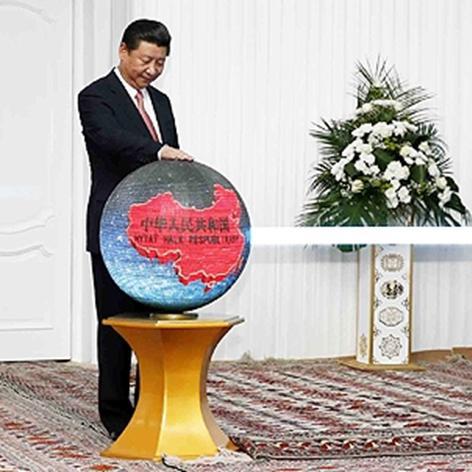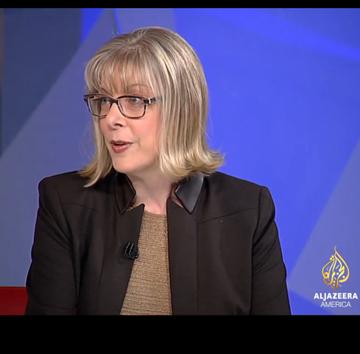In a speech at Nazarbayev University in Kazakhstan on September 5, 2013, Chinese President Xi Jinping outlined his vision of a “Silk Road economic belt” that would further integrate Central Asia and China through expanded flows of trade and investment, and enhanced infrastructure links. Although Chinese leaders have sought greater economic integration with Central Asia for more than two decades, China has become an increasingly important economic player in the region over the past five years. Since 2010, China has been Central Asia’s largest trade partner, with bilateral trade reaching $46 billion in 2012, according to Chinese sources. To improve competitiveness and reduce financial risk, Xi urged Central Asian leaders to opt to use local currencies for transactions, rather than the U.S. dollar, as Russia and China have begun to do since 2010.
Xi’s visit showcased the growing economic presence of the China National Petroleum Corporation (CNPC) in Central Asia, at a time when its top executives are under fire for corruption at home. CNPC paid $5 billion for an 8.33% stake in Kazakhstan’s Kashagan oil and gas field, one of the world’s largest, and sweetened the deal with the extension of a $1.8 billion line of credit to the country’s state-owned energy company, KazMunayGaz (KMG), as well as a pledge to build a desperately needed oil refinery. In Turkmenistan, President Gurbanguly Berdymukhamedov and the Chinese president launched the start of a major new gas processing plant at Galkynysh, also operated by CNPC, which is building a second pipeline to triple gas deliveries from Turkmenistan to China by 2020 to 65 billion cubic meters (bcm).
On September 3, 2013, the day Xi arrived in Turkmenistan, Jiang Jiemin, the former chairman of CNPC and a Central Committee member with ministerial rank, lost his job as head of the State-owned Assets Supervision and Administration Commission for "severe disciplinary violations." Four other CNPC executives are currently under investigation for corruption. Jiang was a member of the petroleum faction in the Chinese leadership and a protégé of Zhou Yongkang, a previous chairman of CNPC, who until last year was the Minister of Public Security and a member of the Standing Committee of the Chinese Politburo. Although Zhou himself has not been accused of any crime, his allies may be targeted because of his previous support for disgraced Chongqing party leader Bo Xilai. The Chinese Foreign Ministry spokesman Hong Lei reassured China’s foreign energy partners that the corruption investigations at CNPC "will not affect China’s energy cooperation with other countries."
Sandwiched between his stops in Turkmenistan and Kazakhstan, the Chinese president also met with Russian President Vladimir Putin on the sidelines of the G-20 meeting. In contrast to the major deals headlined in Turkmenistan and Kazakhstan, Xi and Putin were not able to hail any major breakthrough in their long-discussed plans for a gas pipeline from Siberia to China, as pricing still remains an obstacle. In June, however, the two countries announced a $270 million deal to double Russian oil deliveries to China over the next 25 years, now 15 million tons per year, in exchange for massive prepayments which would bolster Rosneft, the Russian state oil company. In Uzbekistan, China is working with Russian companies (Lukoil and the Rimera group, a Siberian pipeline company) to develop gas fields and build a pipeline to China, but in Turkmenistan, China’s increasing gas purchases (20bcm in 2012) have come at the expense of Russia’s share (10bcm).
While President Xi reiterated his country’s commitment to advancing China-Russia relations, the Chinese leader’s vision of a China-centric Central Asia free trade zone provided a clear contrast to Putin’s Eurasian Customs Union, connecting Central Asian states to Russia, but not including China, as well as to the U.S. Silk Road initiative, which seeks to diversify trade and transit links in the region. “A faraway relative is not as good a nearby neighbor,” Xi told his audience at Nazarbayev University in Kazakhstan. Nonetheless, Putin retains considerable leverage, at least over the smaller weaker Central Asian states like Kyrgyzstan and Tajikistan, which are economically dependent on remittances from migrant workers in Russia, and must join the Customs Union to retain access to the Russian labor market.
[[{“type”:”media”,”view_mode”:”media_large”,”fid”:”1639″,”attributes”:{“alt”:””,”class”:”media-image”,”height”:”298″,”typeof”:”foaf:Image”,”width”:”480″}}]]The presidents of China and Turkmenistan press the start buttons for their new joint gas processing project. Photo from The South China Morning Post, September 4, 2013.
—————
Elizabeth Wishnick | Shairbek Juraev











